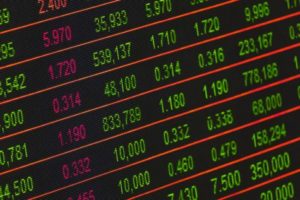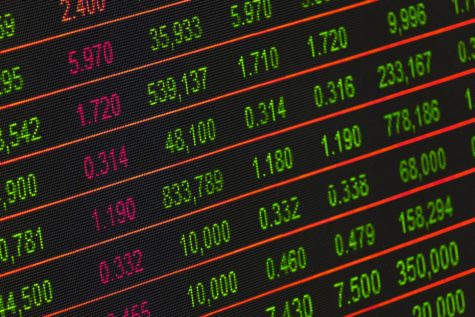LONDON, Ontario — Could hormones be a central factor behind stock market bubbles and bursts? It’s no secret that men have long occupied Wall Street trading floors, just as it’s no secret that elevated levels of testosterone can lead a man to partake in risky behavior. So it shouldn’t come as a surprise that a new study finds testosterone can heavily influence a market’s direction.
Researchers from the Ivey Business School, University of Oxford, and Claremont Graduate University concluded this by elevating levels of testosterone on a group of male traders and observing their buying and selling habits with stocks.

“We show that exogenously increasing testosterone in men increases bid prices and asset price bubbles, and slows the incorporation of fundamental value,” says Amos Nadler, an assistant professor of finance and co-author of the study, in a news release.
The study is the first of its kind to test whether or not testosterone has a direct link to the way people buy and sell stocks.
“The impact of testosterone is that it makes people buy and sell stocks above their fundamental value, and when you see people buying and selling stocks that are more than what they’re worth, they can create bubbles in a market,” Nadler explains in an Ivey Business School video.
Nadler and his team of researchers gathered to test the effects of the hormone on 140 young male traders, whose average age was 23. The participants were set up with computers and took part in 17 sessions — which consisted of three rounds of 12 trading periods for each session — using experimental stock markets. The traders could buy, sell and place bids on stocks using real money, similar to a major market trading floor, with the goal of making as much money as possible. The traders were paid at the end of the experiment.
“The difference between experimental markets and other markets that we’re more familiar with — the TSX, S&P, or Nasdaq — they’re much simpler in that the stocks that people traded in these experimental markets, the value is known to all the traders,” says Nadler. “So the goal is to make these markets realistic in the sense that people can see how much people are bidding for, what they’re willing to sell for. But not so realistic that you can’t identify what are the drivers or causes of behavioral changes.”
The night before the trading was set to begin, one portion of the participants were given 10 mg of the testosterone supplement Androgel, increasing their blood-testosterone levels to “high normal.” The rest of the traders were given a placebo gel.
The authors found that testosterone had a direct effect on the rise of bubbles and how long the bubbles lasted before crashing. Average bidding prices and ask prices for the group given Androgel were significantly higher than the placebo group.
Buying and selling turnover was also measured, using the total number of bids and asks divided by the total number of shares. Once again, the team found that turnover rates for both buying and selling were much higher than the placebo group.
The authors explain in the paper: “We find spreads (i.e., the difference between buying and selling prices) were significantly higher among testosterone markets in all three rounds, suggesting that traders in this group attempted to ‘buy high’ and to ‘sell higher,’ as illustrated by the high asking prices.”
Even though trading values were known during stock trading, the testosterone-driven group affected the market’s outcome by “increasing bidding, selling prices, and volume and changed traders’ perception of a stock’s current value,” the release explains.
Nadler hopes the study will indicate to firms that “hormones matter for financial behavior.” Why is that important? If testosterone levels can affect the way a trader values a stock and his decisions on buying and selling, it affects both capital risk for firms and market risk for everyone.
“Perhaps the simplest recommendation is to implement ‘cool-down’ periods to interrupt exceptionally positive feedback cycles and return the focus to assets’ fundamental valuations to reduce the possibility of biased decision making,” the authors suggest.
The paper will be published in an upcoming issue of the journal Management Science.

Comments
Comments are closed.